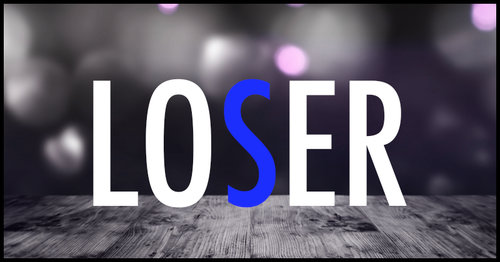Personality tests that force you to make a snap judgement that you can later analyze are a lot of fun, and this one, in particular, is one of my all-time favorites. It goes a little like this: The first word that comes to your mind when you look at this image will determine your result. What word did you see first? What does this say about your subconscious? Keep reading to find out!
If you see LOVER:

If the first word you see is lover, Your subconscious personality is Lively! You are quite intriguing, and you have a way of making people always want to find out more about you. You have a way of keeping people guessing, which can be both exciting and refreshing. No one could ever say that you are predictable or boring.
If you see LOWER:

If the first word you see is lower, your subconscious personality is Dominating! You are brave and always willing to take chances to make your relationships and career more exciting. When your partner, friends, or colleagues are a little nervous about doing something risky, they can count on you to both ease their fears and take the first step. There’s never a dull moment when you are around.
If you see LOSER:

If the first word you see is loser, your subconscious personality is Honest! No one ever wonders where they stand with you, because you will never hesitate to tell them. While the truth may sometimes hurt, your partner or friends never worry about being deceived or lied to, which makes them feel quite secure when they’re around you. Honestly, you’re a breath of fresh air.
This type of test is called The Missing Letter Effect.
Two primary hypotheses tried to explain the missing letter effect: Healy (1994) emphasized identification processes playing a crucial role, almost entirely focusing on word frequency.
However, Koriat & Greenberg (1994) viewed the structural role of the word within a sentence (i.e. function words vs. content words) to be crucial. Both accounts were thoroughly investigated, but neither could completely explain the effect.
A new model called the guidance-organization model was recently proposed to potentially explain the missing letter effect. It is a combination of the two models proposed by Healy and Koriat & Greenberg. As Greenberg et al. explain: “The time spent processing high-frequency function words at the whole-word level is relatively short, thereby enabling the fast and early use of these words to build a tentative structural frame.
Keep Reading: This Cube Test Will Reveal Your Personality

